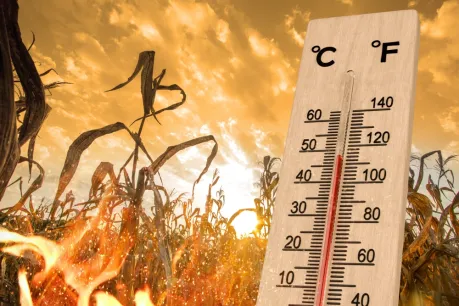Boiling Cities: How Urban Heat Islands Are Putting Lives at Risk

Injured?
As temperatures soar across the country, cities are heating up faster and staying hotter longer than the surrounding areas. This phenomenon, known as the Urban Heat Island (UHI) effect, is no longer just a matter of discomfort. It’s a serious and growing public health threat that puts lives at risk, especially among vulnerable populations like children, older people, low-income families, and outdoor workers.
While climate change plays a significant role, local decisions about infrastructure, zoning, and environmental equity also play a crucial part. In some cases, preventable heat-related injuries and deaths may even give rise to legal claims.
What Is an Urban Heat Island?
Urban Heat Islands form when dense cities trap heat. With fewer trees and more pavement, buildings, and cars, cities absorb and retain heat during the day and radiate it well into the night. This leads to:
- Higher daytime and nighttime temperatures
- Poor air quality and pollution concentration
- Limited cooling relief for residents without air conditioning
- Increased energy costs and grid strain
The impact isn’t spread equally; historically marginalized communities are often hit hardest due to a lack of green space, older buildings, and underinvestment in infrastructure.
Who’s Most at Risk?
The danger from UHIs isn’t abstract; it’s measurable and deadly. The people most vulnerable include:
- Seniors and young children
- People with chronic illnesses or disabilities
- Residents in public housing or older buildings without proper cooling
- Outdoor workers like landscapers, construction workers, and delivery drivers
- Unhoused individuals with no access to cooling shelters
In neighborhoods with little shade and high poverty rates, summer heat can become a public health emergency.
When Heat Turns into Harm and Liability
Many cities are aware of their hottest neighborhoods. They also know who’s most vulnerable. So what happens when heat-related illness or death occurs in areas where the danger was well-documented and avoidable?
In certain cases, government agencies, landlords, or employers may be held legally accountable if they fail to:
- Provide safe working conditions during extreme heat
- Maintain habitable housing with adequate cooling
- Open and staff cooling centers
- Warn the public about heat advisories or service outages
- Implement basic urban planning strategies (shade, tree planting, reflective surfaces)
When lives are at stake and preventable steps aren’t taken, it’s more than poor planning; it may be negligence.
What Can Cities Do About Urban Heat?
To prevent harm, cities can:
- Plant trees and create shaded public areas
- Use reflective roofing and heat-reducing materials in buildings and streets
- Ensure housing codes require adequate ventilation and cooling
- Provide free, accessible cooling centers
- Enforce workplace safety rules around extreme heat
- Address historic environmental inequities through targeted investments
These aren’t luxuries; they’re life-saving measures.
What to Do If You or a Loved One Is Harmed by Urban Heat
If you’ve experienced heat-related illness, injury, or hospitalization due to extreme conditions in an urban environment:
- Get medical attention immediately.
- Document the conditions, such as a lack of shade, poor ventilation, broken cooling systems, or unsafe job sites.
- Report the issue to housing authorities, health departments, or labor boards.
- Speak with an attorney. Urban heat cases may involve complex liability, but an experienced legal team can help assess your rights and options.
The Fight for Safer Cities Starts Now
The Urban Heat Island effect isn’t just a climate issue. It affects how we live, where we live, and who gets to stay safe when the temperature spikes. No one should be injured or worse, because their neighborhood was left out of the conversation.
At Morgan & Morgan, we believe every person deserves protection from preventable harm. When local failures lead to hazardous conditions, we’re here to hold the responsible parties accountable.
Heat-Related Injury in an Overheated City?
If you or someone you love has suffered due to unsafe housing, inadequate public services, or hazardous working conditions during extreme heat, contact Morgan & Morgan to explore how we may be able to help. You could be entitled to compensation, and your case could help change how cities prepare for the next heatwave.

We've got your back
Injured?
Not sure what to do next?
We'll guide you through everything you need to know.

